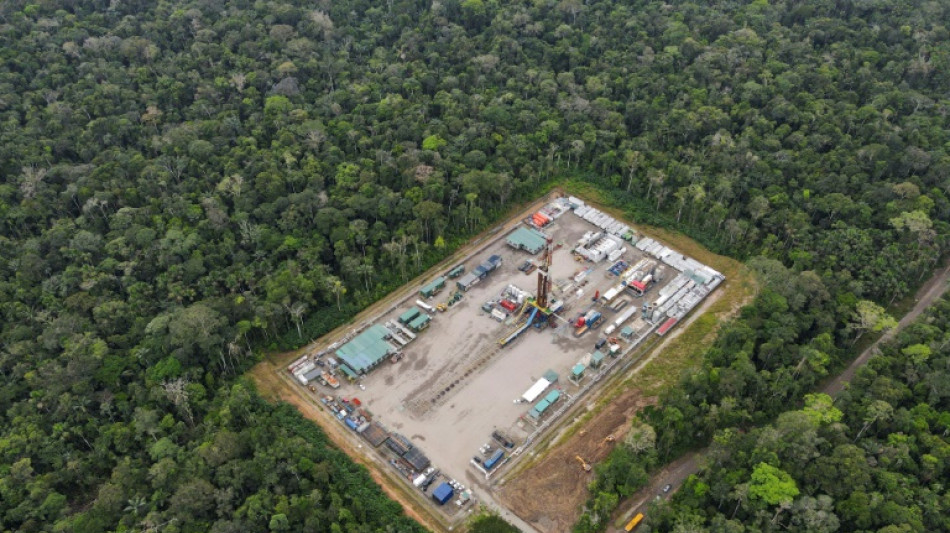Ecuador says vote to halt Amazon oil drilling a 'terrible precedent' / Photo: Rodrigo BUENDIA - AFP
Ecuador's energy minister said Wednesday that a vote to halt drilling in an Amazon oil block set a "terrible precedent" and it would be a long and complex task to dismantle the installation.
Ecuadorans voted in a referendum on Sunday to halt the exploitation of an oil block in Yasuni National Park, one of the most diverse biospheres in the world, a decision hailed as a triumph for climate democracy.
Yasuni is home to three of the world's last uncontacted Indigenous populations and a bounty of plant and animal species.
However, Energy Minister Fernando Santos described the decision to halt drilling as "a very serious blow to Ecuador's dollarized economy, which depends on crude oil, its main export."
"This creates a terrible precedent. There are signed contracts, long-term commitments, the legal security of the country is in question."
The government of outgoing President Guillermo Lasso estimates a loss of $16 billion over the next 20 years.
When the Constitutional Court in May gave the green light for the referendum, it established that state oil company Petroecuador would have a year to shutter operations if the "Yes" vote won.
Santos said this would be "physically impossible."
"It is a very complex process, never in the world's oil history, has such an important field, which produces 60,000 barrels a day, suddenly stopped," said Santos.
He said dismantling the field implies "removing the installations, which are thousands of tons of steel, cables, installations of all kinds."
Block 43 occupies 80 of the million hectares that make up the Yasuni reserve, and is considered the jewel in Petroecuador's crown.
Drilling in Yasuni began in 2016 after years of fraught debate and failed efforts by then-president Rafael Correa to persuade the international community to pay cash-strapped Ecuador $3.6 billion not to drill there.
Oil exploitation has been one of the pillars of Ecuador's economy since the 1970s.
Crude oil generated revenues of $10 billion in 2022, around 10 percent of gross domestic product.
Nearly 500,000 barrels are produced daily in the northeastern Amazon, in the shadow of the Andes, blighting the environment with wells, pipelines, and flames shooting into the air.
The industry has been a boon to state coffers and development, but environmentalists decry terrible pollution.
E.Narula--BD
